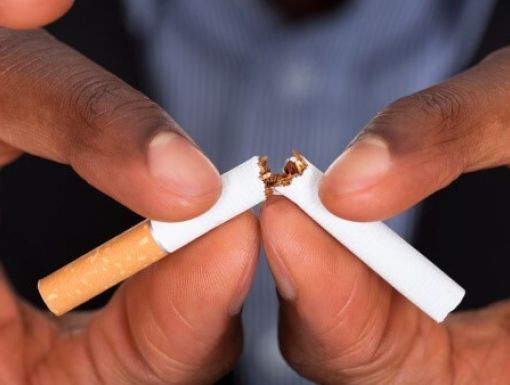
Can Vaping Cause Hair Loss and Reduce Future Hair Growth?
What is vaping?
Vaping is the act of inhaling and exhaling aerosols produced by an electronic cigarette or similar device. The aerosol that comes out of e-cigarettes can contain nicotine, formaldehyde and other toxic substances, and have not been proven to be safer than regular cigarettes.
Unfortunately, there was much misinformation when these products first came to market. The vaping industry claimed that vapes and electronic cigarettes are being used to help smokers quit, but they failed to mention that the devices used in “European studies” had much less nicotine than their American counterparts. These devices had approximately 0.5% nicotine compared to those sold in the United States with 3% nicotine.
What are the health risks of vaping?
A person who vapes often thinks there are fewer health risk factors because the vaping industry first advertised their products as made with “food grade” chemicals. What the vaping industry does not inform vapers is that these chemicals were never intended to be inhaled. Numerous dangerous chemicals in vape liquids can cause long-term health problems. Almost every vape uses propylene glycol or vegetable glycerin as the base ingredient. Propylene glycol is a chemical used in many products and foods we eat. While the Food and Drug Administration states that this chemical is recognized as safe when ingested little is known when it is intentionally inhaled. One study found that it causes upper respiratory irritation when inhaled for a minute, but the outcomes of long-term exposure are still uncertain.
Vegetable glycerin, is another chemical in vaping liquids that causes respiratory distress and can also affect the way the liver functions as found in a recent study. Many other chemicals were never intended to be inhaled in vape liquids, which can damage cells in our bodies. From flavorings to known carcinogens, a substance capable of causing cancer, vapes have more dangerous chemicals than what was originally advertised.
Does vaping cause hair loss?
Smoking can cause hair loss by narrowing blood vessels, damaging DNA, harming hair follicles, speeding up aging and affecting hormones. Researchers are still studying how vaping might impact hair growth and have yet to have clear answers. But there are some ways vaping could influence hair health.
- Nicotine constriction: Vaping products often contain nicotine, which can tighten blood vessels, reducing blood flow to hair follicles. Proper blood flow is essential for hair growth.
- Inflammation: Some studies suggest that vaping may lead to lung inflammation. Inflammation is linked to various health issues and may impact hair health.
- Stress: Nicotine is a known stimulant; vaping can lead to nicotine addiction. Stress and anxiety resulting from addiction can contribute to hair loss.
It is important to note that although the research on vaping and hair loss is limited, individual responses to vaping can change. If you're concerned about hair loss or changes in hair growth and you vape, it's a good idea to consult with a healthcare professional or dermatologist. They can help evaluate your situation and guide you on factors contributing to hair issues. Additionally, quitting vaping or any tobacco or nicotine product is associated with overall health benefits and may positively impact your hair health.
Can you be addicted to vaping?
Vaping is not a safer alternative to smoking as far as the chemical factor is concerned. There are two components to addiction: behavioral and chemical. Clinicians in the Ochsner Health Smoking Cessation Program find it more challenging to help patients who use their vape because of the behavior component. Why? Because vapes smell good, they are easily accessible, simple to hide in non-smoking areas and work until they are empty or the battery dies. Clinicians noticed that patients would vape more nicotine when compared to a smoker because of their ease of use and vapes have higher nicotine levels.
If you are wondering if you are addicted to vaping, the signs should be clear.
- Are you having cravings?
- Do you find yourself “hitting the vape” in smoke-free areas?
- Do you panic if you do not have a vape in your possession?
- Do you have to stop and buy a vape if you forget it at home?
These are all signs of being addicted to vaping and nicotine. Some symptoms to be aware of to determine if you have too much nicotine from vaping are:
- Sweating
- Nausea
- Coughing
- Headache, increased anxiety or sadness
- Failure to concentrate.
How can I quit?
The first thing is being ready to quit and quitting for yourself. If you are 18 or older, schedule an appointment with one of Ochsner’s certified tobacco cessation specialists by calling 504-842-7490 or asking your primary care physician to place a referral. Patients will be scheduled for an intake at one of our clinics and create a treatment plan.
Is it possible to do this on your own? Yes, but certified tobacco cessation specialists are trained in tobacco treatment cessation therapy and have one of the highest successful quit rates in the country. Patients do not have to do this alone; counseling services are free and some medications may also be free depending on the treatment plan.
Prevention methods and health alternatives?
As with any substance use, there are no healthy alternatives to vaping other than abstinence. The best alternative and prevention method is to include healthy coping mechanisms before addiction becomes a factor.
Include small activities when life stressors pile up. Pick a hobby, exercise, integrate enjoyable activities into daily routines and learn something new. As stress builds, exercise, meditation and breathing exercises can be done multiple times daily. Identifying focus and coping with it healthily is key to chemical prevention and addiction.
Vaping was once marketed as an alternative to smoking, but research is showing that vaping is equally dangerous. You can do many things to alleviate stress and not become addicted to nicotine by committing to leading a healthy, nicotine-free lifestyle and, being aware of stressors and knowing that nicotine is not the answer.
Ready to quit smoking? Learn more about our Smoking Cessation Services.


